Professional EMG testing that pinpoints exactly what’s causing your symptoms so you can move forward with the right treatment.
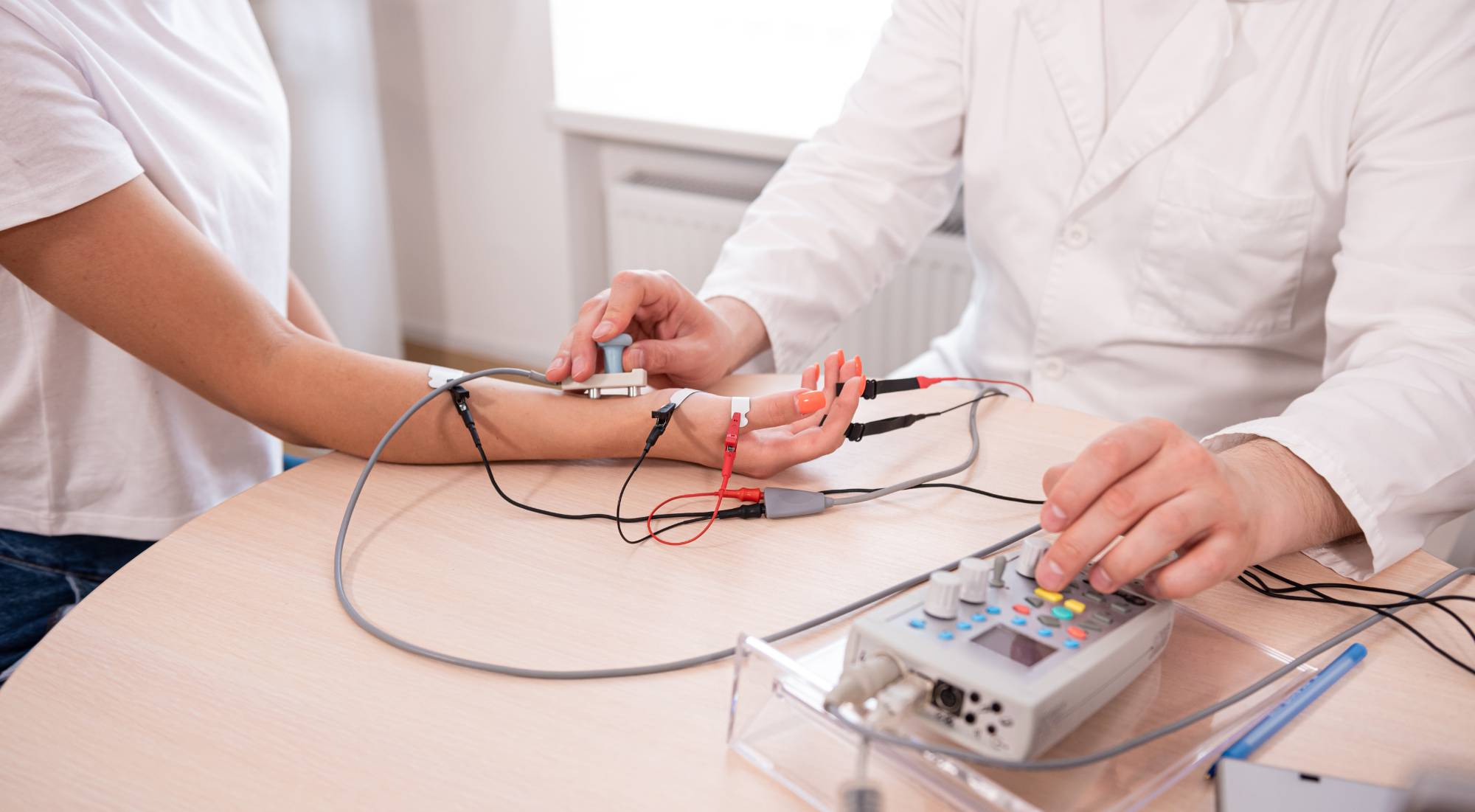
Reviews
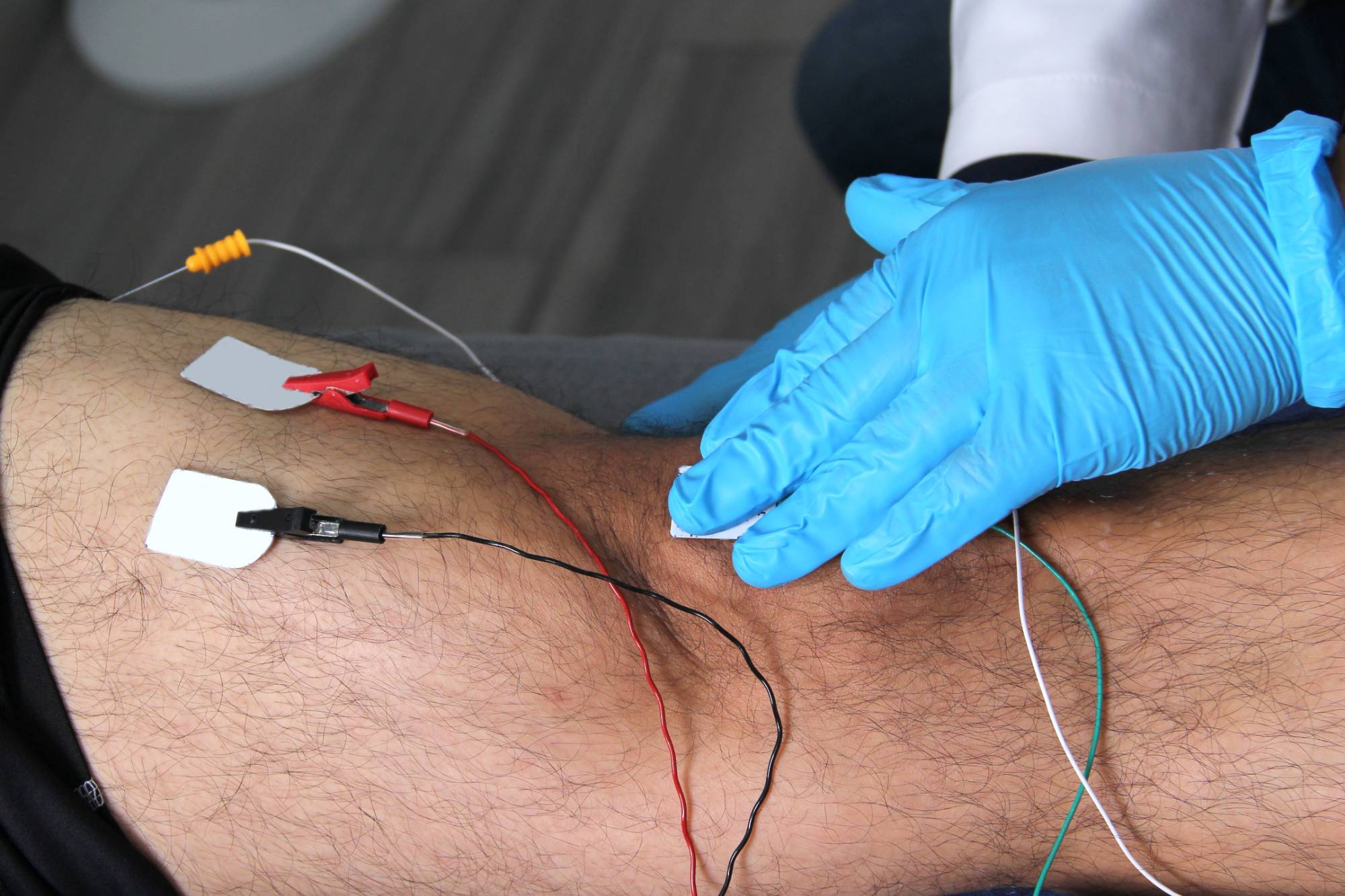
You’ve been dealing with numbness, tingling, or muscle weakness long enough. Maybe your fingers go numb at night, or your leg feels weak when you walk. Perhaps you’re experiencing shooting pains that come and go without warning.
EMG testing gives you concrete answers. Instead of wondering what’s causing your symptoms, you’ll know exactly which nerves or muscles are affected and how severe the problem is. This clarity means your doctor can create a treatment plan that actually addresses the root cause.
The test measures electrical activity in your muscles and nerves, revealing problems that other tests might miss. When you leave, you’ll have definitive results that move you closer to feeling better instead of more questions and uncertainty.
NY Spine Medicine has been serving patients throughout Ridgewood and North Jersey with comprehensive neurological diagnostic services. We understand that coming in for EMG testing often means you’ve been struggling with symptoms that are affecting your daily life.
We combine advanced diagnostic equipment with experienced technicians who know how to get accurate results while keeping you comfortable. We work closely with your referring physician to ensure your results are communicated clearly and quickly.
Located conveniently in Ridgewood, our facility makes it easy for local residents to get the testing they need without traveling to Manhattan or dealing with hospital wait times.
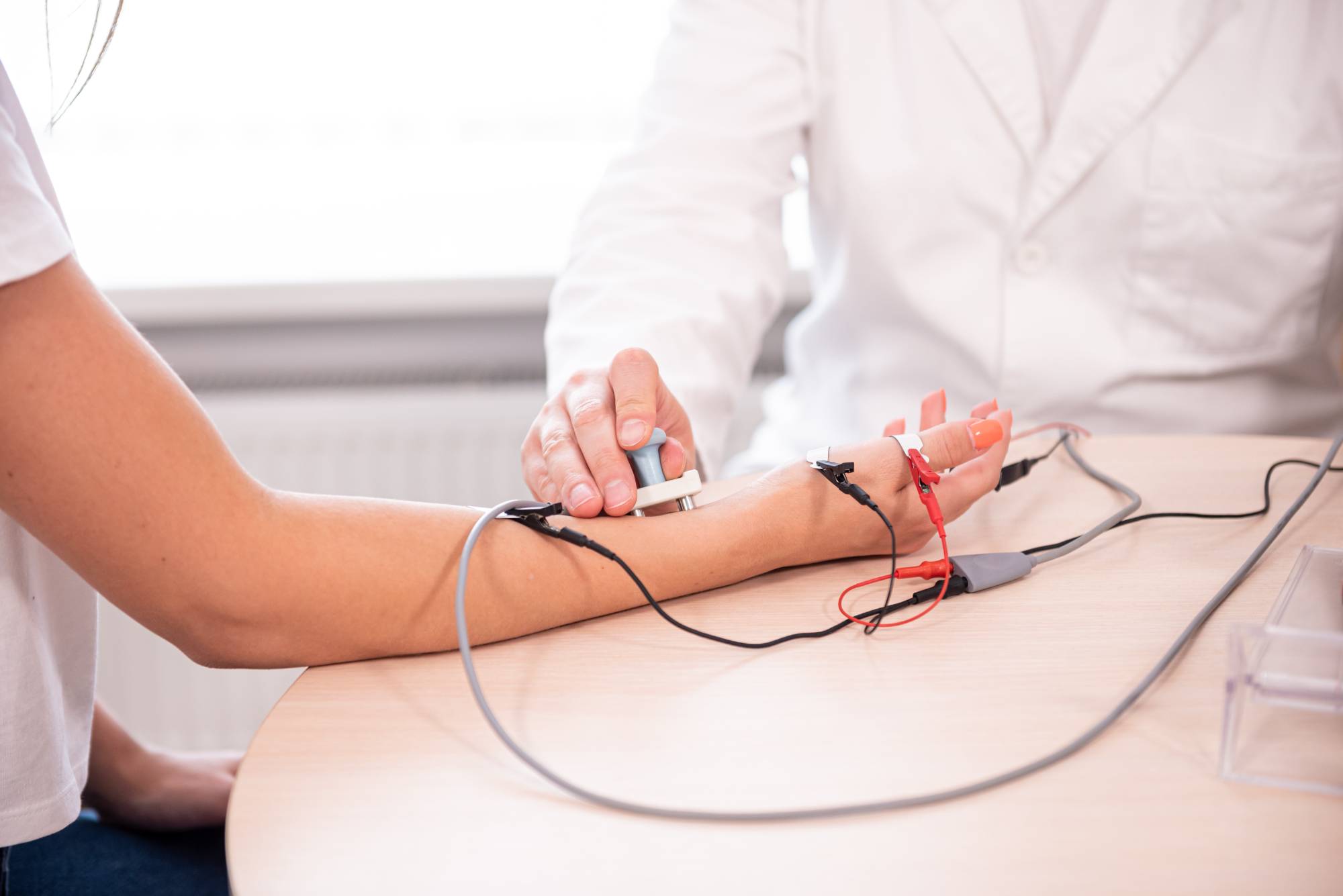
Your EMG test typically includes both nerve conduction studies and electromyography, usually completed in the same appointment. The nerve conduction portion comes first, where small electrodes are placed on your skin to measure how well electrical signals travel through your nerves.
During electromyography, a thin needle electrode is inserted into specific muscles to record their electrical activity. You’ll be asked to relax certain muscles, then contract them gently. Our technician monitors the electrical patterns to identify any abnormalities.
Most tests take 30 to 60 minutes depending on which areas need evaluation. You’ll receive some initial feedback during the test, and complete results are typically available within a few days. The findings go directly to your referring physician, who will discuss treatment options based on what the test reveals.
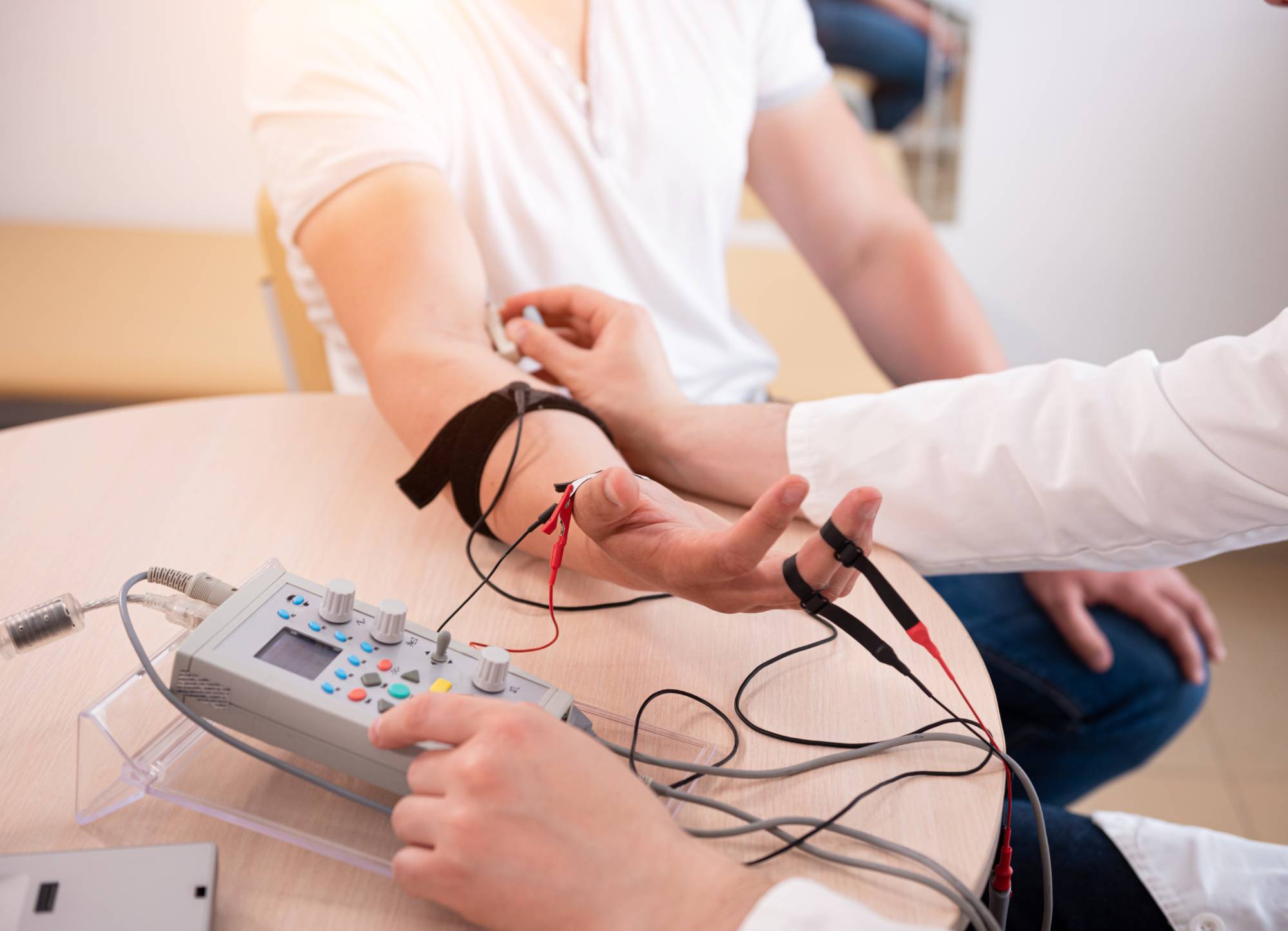
Ready to get started?
Your EMG testing includes both nerve conduction studies and electromyography to give a complete picture of your neuromuscular function. The test can identify conditions like carpal tunnel syndrome, diabetic neuropathy, sciatica, muscle disorders, and nerve injuries.
The evaluation covers the specific areas where you’re experiencing symptoms, whether that’s your hands, arms, legs, or back. Advanced equipment ensures precise measurements that help distinguish between nerve problems, muscle disorders, and other conditions that might cause similar symptoms.
You’ll receive clear documentation of all findings, including normal and abnormal results. This comprehensive approach means you won’t need to repeat testing elsewhere, and your doctor will have all the information needed to recommend the most effective treatment for your specific condition.
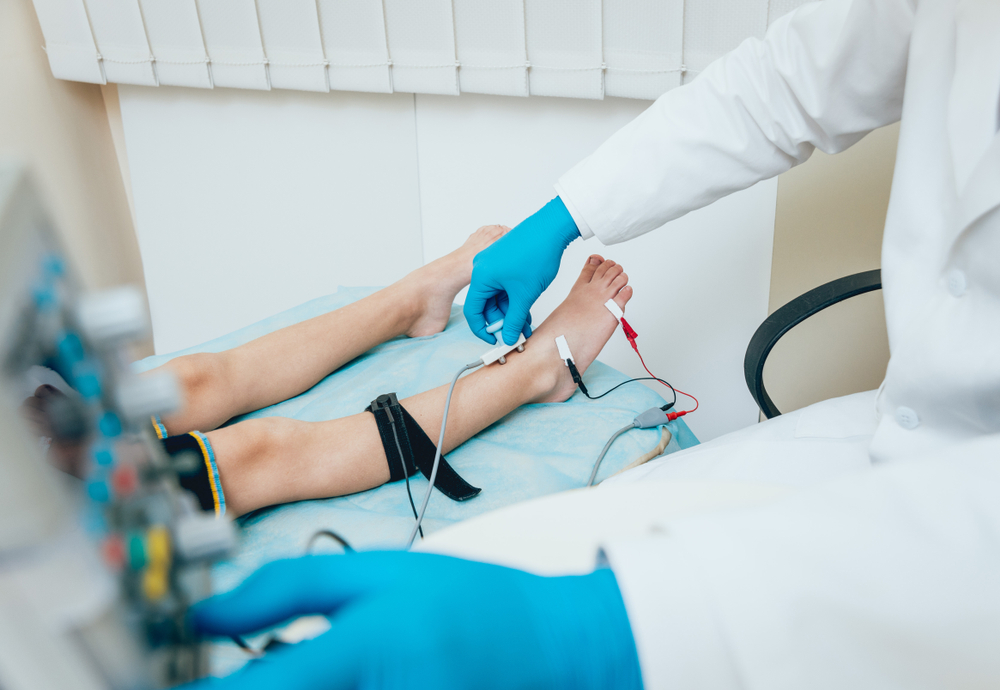
New York:
Florida:
Support